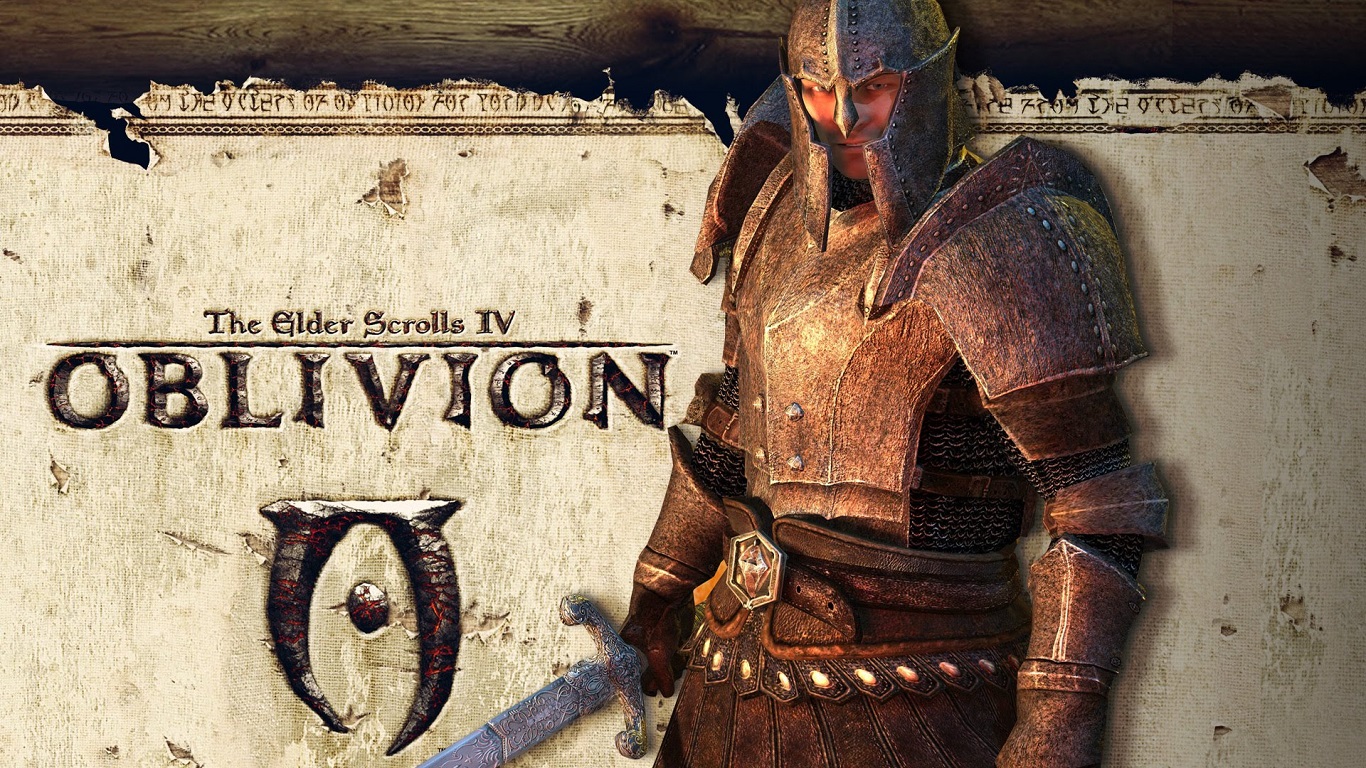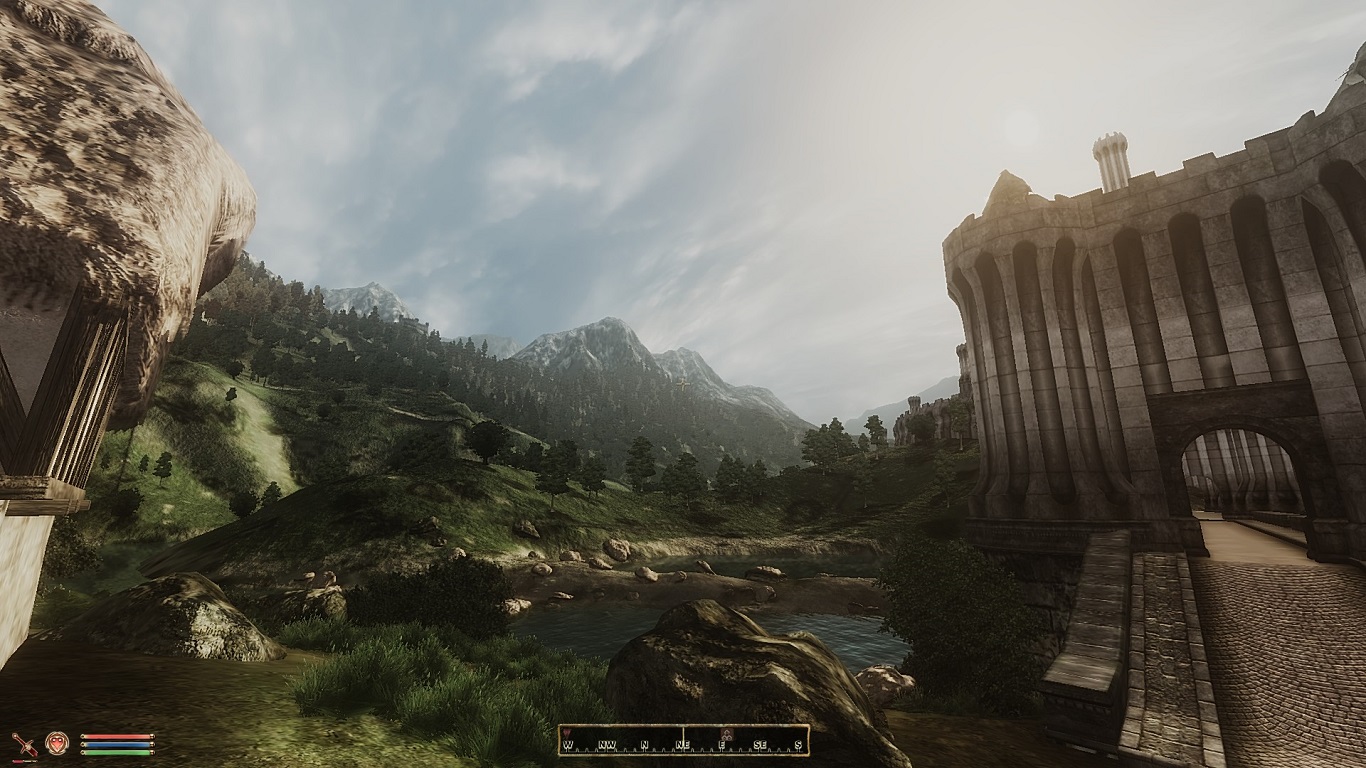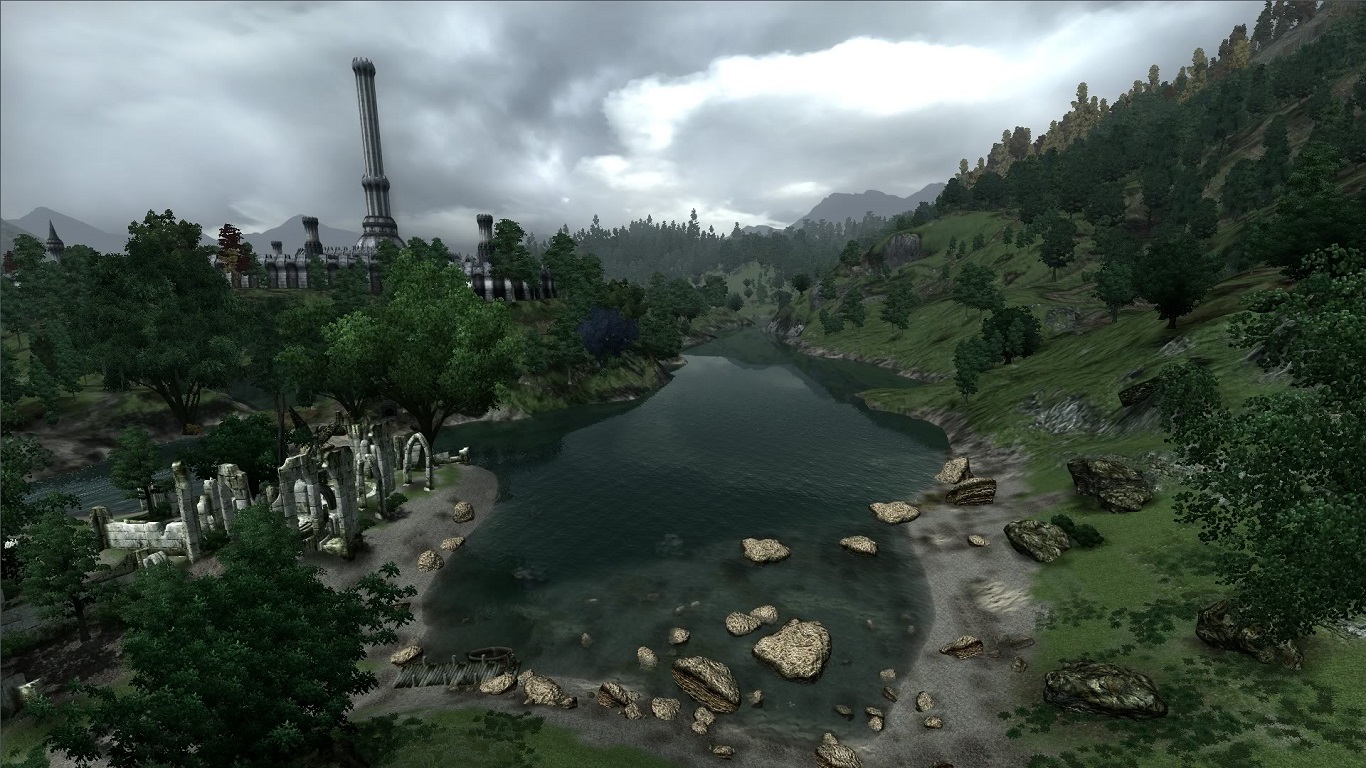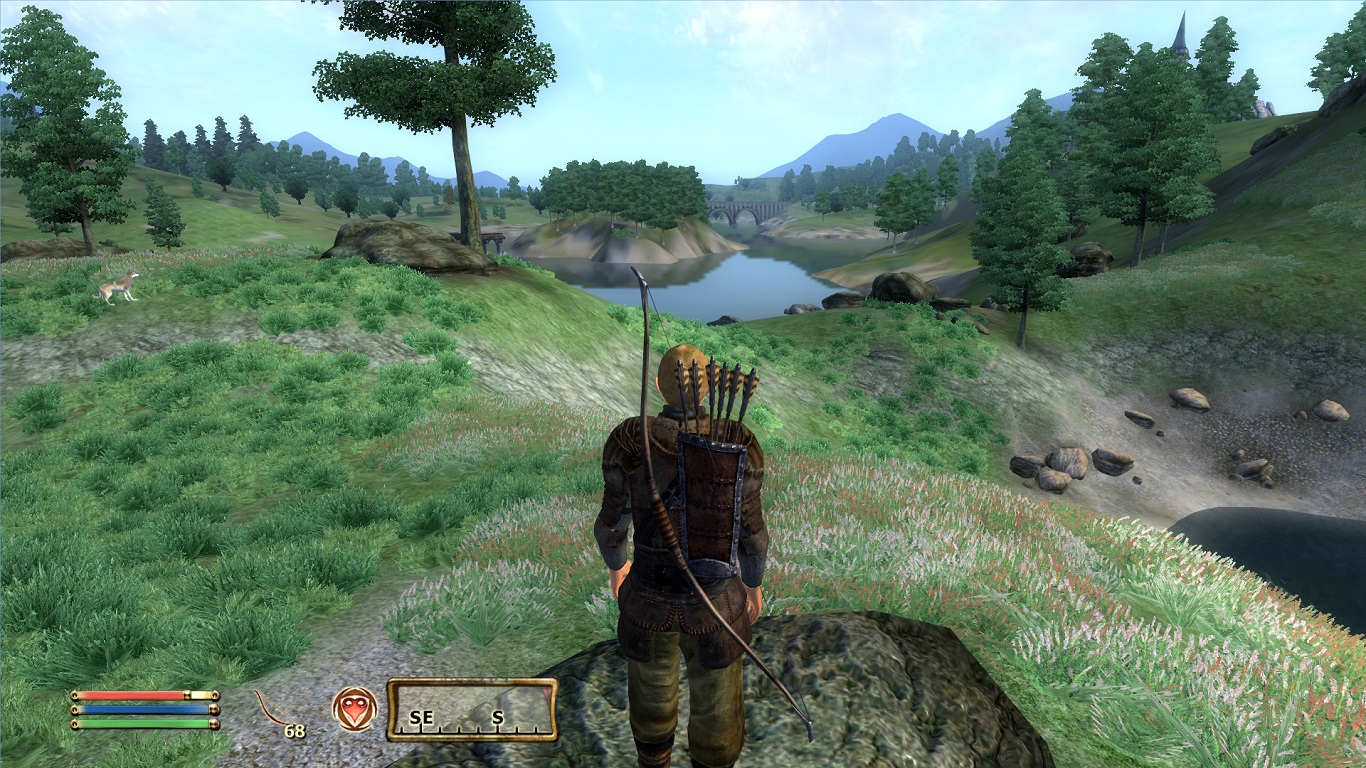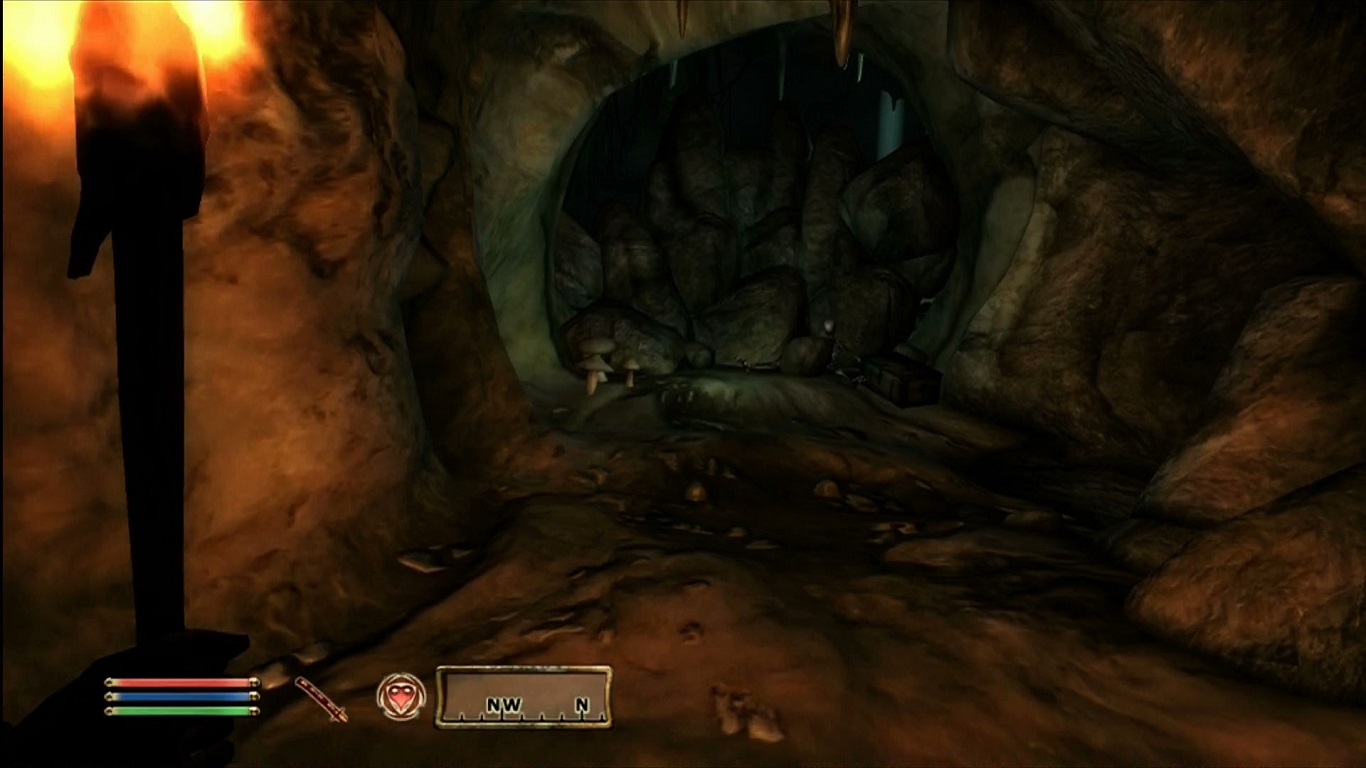INTRODUCTION
The Elder Scrolls IV: Oblivion is an action role-playing video game developed by Bethesda Game Studios and published by Bethesda Softworks and the Take-Two Interactive division 2K Games. It is the fourth installment in The Elder Scrolls action fantasy series, following The Elder Scrolls III: Morrowind and preceding The Elder Scrolls V: Skyrim. The game was released for Microsoft Windows and Xbox 360 in March 2006, and on PlayStation 3 in March 2007, with a mobile version of the game released on May 2, 2006. Taking place within the fictional province of Cyrodiil, Oblivion's main story revolves around the player character's efforts to thwart a fanatical cult known as the "Mythic Dawn" that plans to open portal gates to a demonic realm known as "Oblivion". The game continues the open world tradition of its predecessors by allowing the player to travel anywhere in the game world at any time and to ignore or postpone the main storyline indefinitely. A perpetual objective for players is to improve their character's skills, which are numerical representations of certain abilities. Early in the game, seven skills are selected by the player as major skills for their character, with those remaining termed as minor skills.Development for Oblivion began in 2002, directly after the release of Morrowind, opting for tighter pacing in gameplay and greater plot focus than in past titles. To design the graphics, Bethesda used an improved Havok physics engine, high dynamic range lighting, procedural content generation tools that allowed developers to quickly create detailed terrains, and the Radiant A.I. system, which enabled non-player characters (NPCs) to make choices and engage in behaviors more complex than in past titles. The game features fully voiced NPCs—a first for the series—and the music of award-winning composer Jeremy Soule. Upon release, Oblivion was well received by critics and has won a number of industry and publication awards. It was praised for its impressive graphics, expansive game world, and schedule-driven NPCs. It was successful both commercially and critically. Following a number of smaller content releases, Bethesda released two expansion packs for the game, Knights of the Nine and Shivering Isles, which were bundled with The Elder Scrolls IV: Oblivion Game of the Year Edition which was released in 2007, and later re-released as a fifth-anniversary edition in 2011.
GAMEPLAY
Oblivion is a role-playing game (RPG) that incorporates open-ended gameplay. The player can follow side-quests, interact with NPCs, dispatch monsters, develop their character, and travel anywhere in the province of Cyrodiil at any time while playing the game (provided that the areas are not quest-specific and otherwise inaccessible when not questing). The game never ends, and the player can continue playing after completing the main quest. The gameplay includes a "fast travel" system, in which an icon appears on the game world map every time the player visits a new location. This excludes the game world's main cities which are already unlocked for fast travel from the start of the game. The player can arrive at the desired location instantaneously by selecting the icon on the map.Character development is a primary element of Oblivion. At the beginning of the game, players select one of many human or anthropomorphic races, each of which has different natural abilities, and customize their character's appearance. A perpetual objective for players is to improve their character's skills, which are numerical representations of their ability in certain areas.
Seven skills are selected early in the game as major skills, with the remainder termed minor. The players level up each time they improve their major skills by a total of ten points; this provides the opportunity to improve their attributes. Attributes are more broad character qualities, such as "speed" and "endurance", while skills are more specific, such as "armorer" or "athletics". Afflictions such as disease and poison can reduce the player's attributes. When players reach 25, 50, 75, or 100 points in a single skill, they unlock new abilities related to the skill.
The game's 21 skills fall evenly under the categories of combat, magic, and stealth, and many skills complement more than one area. Combat skills are used primarily for battle and incorporate armor and heavy weapons like blades, axes, maces, and hammers. Magic skills rely on the use of spells to alter the physical world, to affect the minds of others, to injure and debilitate enemies, to summon monsters to help fight, and to heal wounds. Stealth skills allow the player to crack locks, haggle for goods, use speech to manipulate people, and apply cunning in combat (through the use of a bow or with a sneak attack). The spells, weapons, and other tools such that a player needs to employ and enhance these skills, such as lockpicks, can be purchased in shops, stolen from NPCs, or found as loot on the bodies of foes or in dungeons.
Oblivion can be played in either a first- or third-person view, except in the mobile phone version, in which the game can only be played in isometric projection. The player may change the level of difficulty at any time, thereby weakening opponents and increasing the chance of success for particular actions. The screen constantly presents a heads-up display, which provides information about the character's health, magicka, and fatigue, all of which can be increased by leveling up.
Health can be restored by spells, potions, or resting; the loss of all health results in death. Magicka enables and is depleted by the use of spells; it is rejuvenated naturally over time, but it can be restored similarly to health. Fatigue affects the character's effectiveness in combat and general efficiency, and can be alleviated by resting, potions, and spells.
Throughout the world are a variety of enemies, including standard fantasy monsters such as imps and goblins, and animals such as bears and wolves. Enemies become stronger and weapons and armor more effective as the player levels up. This game mechanic of level-scaling was incorporated to maintain a constant and moderate aspect of difficulty. However, level-scaling combined with the leveling system has received criticism, as it has the potential to unbalance the game; characters with major skills that increase on an involuntary basis, such as athletics or armor, can find that they level too quickly, making the enemies proportionately harder than intended.
